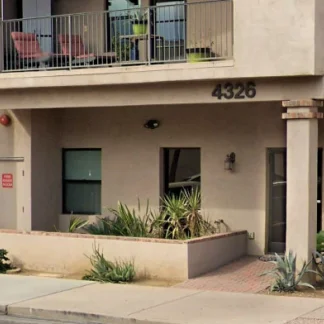Southwest Behavioral Health - Erickson Outpatient
Southwest Behavioral Health - Erickson Outpatient is a behavioral health care an...
Gallus Detox Center, in Scottsdale, Arizona, is a luxury alcohol and drug rehab for adults. They specialize in inpatient medical detox and aftercare planning and support, including dedicated services for pregnant and postpartum women, polysubstance abusers, and persons with co-occurring addiction and mental illness.
Their inpatient medical detox facility enables clients to focus on their recovery in a highly structured and supportive environment featuring around-the-clock clinical supervision. Premium amenities include wi-fi access and private rooms with flat-screen televisions and queen beds. Clients receive medical and mental health assessments and personalized care plans. FDA-approved intravenous and oral medications are prescribed to ease withdrawal symptoms and prevent potentially serious complications. Clients also engage in individual, group, and family counseling and are introduced to fundamental recovery-focused life skills. Clients typically remain in inpatient detox for 3-10 days before transitioning to an inpatient rehab or outpatient treatment program.
Their aftercare services support clients’ continued abstinence following detox and includes step-down support for clients entering inpatient, partial hospitalization (PHP), or intensive outpatient (IOP) programs.
Gallus Detox Center is licensed by the state of Arizona and accredited by The Joint Commission.
Gallus Detox Center works with most major insurance providers, such as Aetna, Cigna, BlueCross BlueShield, Humana, and United Healthcare. Contact your provider to verify coverage because out of network benefits can vary.
Contact us for more information: (888) 314-0517

Connect with Gallus Detox Center by calling their admissions team directly.
(888) 314-0517 Website Get DirectionsThe Joint Commission, formerly known as JCAHO, is a nonprofit organization that accredits rehab organizations and programs. Founded in 1951, the Joint Commision's mission is to improve the quality of patient care and demonstrating the quality of patient care.
Joint Commission Accreditation: Yes Accreditation Number: 589423
The Substance Abuse and Mental Health Services Administration (SAMHSA) is a branch of the U.S. Department of Health and Human Services. Established in 1992 by congress, SAMHSA's mission is to reduce the impact of substance abuse and mental illness on American's communities.
SAMHSA Listed: Yes
State Licenses are permits issued by government agencies that allow rehab organizations to conduct business legally within a certain geographical area. Typically, the kind of program a rehab facility offers, along with its physical location, determines which licenses are required to operate legally.
State License: Arizona License Number: IFBH7404
Research clearly demonstrates that recovery is far more successful and sustainable when loved ones like family members participate in rehab and substance abuse treatment. Genetic factors may be at play when it comes to drug and alcohol addiction, as well as mental health issues. Family dynamics often play a critical role in addiction triggers, and if properly educated, family members can be a strong source of support when it comes to rehabilitation.
In individual therapy, a patient meets one-on-one with a trained psychologist or counselor. Therapy is a pivotal part of effective substance abuse treatment, as it often covers root causes of addiction, including challenges faced by the patient in their social, family, and work/school life.
Nicotine Replacement Therapy (NRT) is a way of getting nicotine into the bloodstream without smoking. It uses products that supply low doses of nicotine to help people stop smoking. The goal of therapy is to cut down on cravings for nicotine and ease the symptoms of nicotine withdrawal.
In individual therapy, a patient meets one-on-one with a trained psychologist or counselor. Therapy is a pivotal part of effective substance abuse treatment, as it often covers root causes of addiction, including challenges faced by the patient in their social, family, and work/school life.
Nicotine Replacement Therapy (NRT) is a way of getting nicotine into the bloodstream without smoking. It uses products that supply low doses of nicotine to help people stop smoking. The goal of therapy is to cut down on cravings for nicotine and ease the symptoms of nicotine withdrawal.
Nicotine Replacement Therapy (NRT) is a way of getting nicotine into the bloodstream without smoking. It uses products that supply low doses of nicotine to help people stop smoking. The goal of therapy is to cut down on cravings for nicotine and ease the symptoms of nicotine withdrawal.
Southwest Behavioral Health - Erickson Outpatient is a behavioral health care an...
Scottsdale Providence recovery provides alcohol and drug rehab services, along w...
Illuminate Recovery is a 12-Step-focused alcohol and drug rehab for adults in Sc...
Located in Scottsdale, Arizona, Purpose Healing Center is an alcohol and drug re...